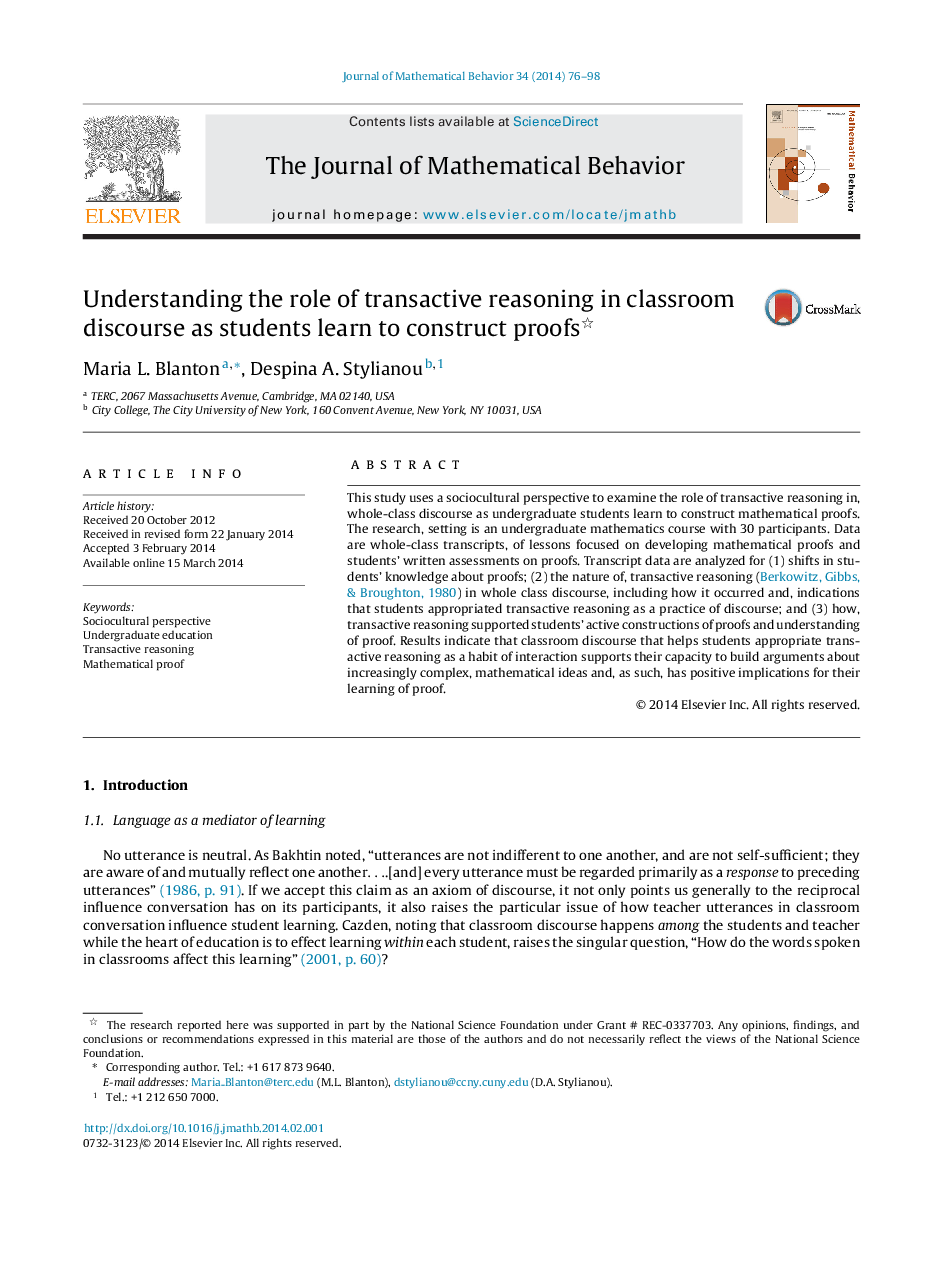| Article ID | Journal | Published Year | Pages | File Type |
|---|---|---|---|---|
| 360763 | The Journal of Mathematical Behavior | 2014 | 23 Pages |
•Used a sociocultural perspective to examine the role of transactive reasoning in whole-class discourse on proof.•Examined shifts in students’ knowledge about proofs as seen in their proof schemes and use of strategic knowledge.•Examined how transactive reasoning supports negotiation of ideas in the construction of proofs.•Classroom discourse that fosters students’ transactive reasoning supports their capacity to build mathematical arguments.
This study uses a sociocultural perspective to examine the role of transactive reasoning in, whole-class discourse as undergraduate students learn to construct mathematical proofs. The research, setting is an undergraduate mathematics course with 30 participants. Data are whole-class transcripts, of lessons focused on developing mathematical proofs and students’ written assessments on proofs. Transcript data are analyzed for (1) shifts in students’ knowledge about proofs; (2) the nature of, transactive reasoning (Berkowitz, Gibbs, & Broughton, 1980) in whole class discourse, including how it occurred and, indications that students appropriated transactive reasoning as a practice of discourse; and (3) how, transactive reasoning supported students’ active constructions of proofs and understanding of proof. Results indicate that classroom discourse that helps students appropriate transactive reasoning as a habit of interaction supports their capacity to build arguments about increasingly complex, mathematical ideas and, as such, has positive implications for their learning of proof.
